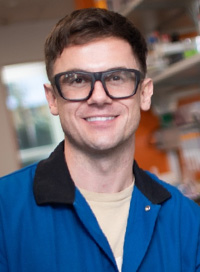Mission: To serve as a catalyst for novel translational science investigations and the formation of new collaborative teams, particularly emphasizing early career applicants.
We award pilot funding of up to $25K per investigator with Translational Science research projects of novel approaches to Translational Science, open to faculty and postdoctoral fellows from the LINCATS network. Up to 4 awards are granted per year. (What is translational science?)
Only applications addressing Translational Science are considered. Priority will be given to proposals focusing on the needs of underserved Long Island communities. These needs, listed below, are identified through the Community Advisory Board and Community Ambassadors through their discussion with the communities they represent:
- Mental Health (Anxiety, Depression)
- Substance Use Disorder
- Violence (Human Trafficking, Gun Violence, Domestic Violence, Gender Violence)
- Maternal Health Disparities (Mortality, Long-term Outcomes)
- Cancer
Congratulations to our LINCATS Pilot Program Awardees!

Josh Homer, PhD – Cold Spring Harbor Laboratory
Awarded 2024
“Developing Phosphorus-Based Antibiotics for Targeting Drug-Resistant Bacteria”
The effectiveness of antibiotics is diminishing at an alarming rate, making even simple bacterial infections more difficult to treat. The increased doses of antibiotics needed to combat these drug-resistant infections can significantly harm the beneficial bacteria that our bodies rely on for a multitude of reasons. To address this situation, we are working to include phosphorus groups into existing antibiotics to generate antibiotic “prodrugs” that are designed to activate selectively at infection sites, sparing the patient’s good bacteria. This approach to antibiotic design could greatly benefit a wide range of patients, including those with weakened immune systems or undergoing chemotherapy.

Katherine Matho, PhD – Cold Spring Harbor Laboratory
Awarded 2024
“Cell type-specific molecular and connectivity signatures of a polygenic neurodevelopmental disease”
Neurodevelopmental and neuropsychiatric disorders such as Autism Spectrum Disorder (ASD) and schizophrenia (SCZ) are associated with increased risk of anxiety and depression. Establishing more objective and reliable diagnostic tools for such conditions could result in improved medical care and mental health outcomes. Despite decades of experimental research focused on identifying genetic mutations that predispose individuals to ASD and SCZ, the impact of these mutations on brain systems remains limited. This pilot project focuses on identifying specific brain cells and circuits that are perturbed by a genetic mutation known as 22q11.2 deletion or DiGeorge syndrome. This mutation constitutes a high risk for developing ASD and SCZ. In an established pre-clinical model, we will use new technologies for high throughput neuroanatomy based on next-generation sequencing. Our ultimate goal is to pave the way toward the identification of biological markers that can be targeted for improved diagnosis, thus contributing toward developing translational strategies that may ultimately help people living with ASD and SCZ.

Gilbert Rahme, PhD – Stony Brook Medicine
Awarded 2024
“Improving clinical efficacy of DNA methylation inhibitors for IDH1-mutant gliomas”
Malignant gliomas are incurable primary brain tumors. A majority of these tumors are caused by mutations in a metabolic gene called Isocitrate dehydrogenase 1 (IDH1). This mutation drives widespread DNA hypermethylation, a repressive epigenetic change, leading to the remodeling of the epigenome. We have previously shown that these widespread DNA methylation changes drive tumorigenesis in IDH1-mutant gliomas. These findings suggest that a class of drugs, epigenetic reset agents, which can reset DNA methylation changes may offer a promising therapeutic strategy for these tumors. In this study, we evaluate the preclinical efficacy of epigenetic reset agents as single agents or in combination with other therapeutic agents, which we predict using molecular profiling to improve the efficacy of epigenetic reset agents. Our findings aim to identify novel therapeutic strategies that could significantly improve outcomes for patients with IDH1-mutant gliomas.

Kathleen Monahan, DSW, LCSW, LMFT – SBU School of Social Welfare
Awarded 2023
“Brain Metabolism and Cognitive Impairment following Traumatic Brain Injury (TBI) of Domestic Violence Shelter Residents: A PET/MRI study”
Intimate Partner Violence (IPV) impacts over 10,000 Long Island women per year and head injuries sustained by this group are often unreported and left untreated. Importantly, Intimate Partner Violence survivors often have problems with memory and other cognitive functions, which are also very common in the aftermath of TBI. The goal of the proposed study is to use advanced brain imaging technology (MRI/PET) in conjunction with detailed neuropsychological evaluation to better understand the outcomes of partner violence-related brain injury in women. The underlying hypothesis is that IPV-related TBI leads to decreased rates of metabolism in specific brain regions which support higher brain function and correlate with the type and severity of cognitive deficits.
Domestic violence shelters and agencies have enthusiastically participated in this project and the LINCATS funding will assist in data collection and facilitate acquisition to funding mechanisms that will allow larger scale studies and ultimately improve the lives of Long Island women.

Cassandra Heiselman, MD – Stony Brook Medicine
Awarded 2023
“Pregnancy Expectations Among Stigmatized Populations: Life experiences, Vulnerabilities, and Community Roles"
To improve care delivery and outcomes, it is critical to uncover the roles of psychosocial adversity on the perinatal experience. A growing body of literature links psychosocial vulnerabilities to poorer healthcare behaviors. One such vulnerability, the experience of discrimination, is associated with lower healthcare utilization and poorer health outcomes of minoritized and stigmatized populations. The goal of the study is to gain an in-depth understanding of how patients’ lived experiences shape their perceptions of obstetrics care. Findings will form the basis for the development of a unified theoretical framework regarding the effects of marginalization on maternal and infant health, intervention development, and future large-scale research that will include healthcare intervention.

Chander Sadasivan, PhD – Stony Brook Medicine
Awarded 2023
“Clinical Translation of Personalized Medical Devices generated by Topology Optimization”
Medical Device Production Systems (MDPS) are a new regulatory concept developed to approve the production of personalized, patient-matched medical devices (PMD) at point-of-care facilities. Topology Optimization (TO) is a powerful computational tool that can optimize the distribution of material to find the most efficient structure that fulfills the requirements defined by objective and constraint functions in the optimization scheme. Using TO, a set of disease-specific objective functions and constraints can be developed and applied to patient-specific variables (such as anatomy, stress or hemodynamics loads) in order to generate topology optimized, patient-matched medical devices (TO-PMD). These TO-PMDs can then be 3D-printed and implanted in that specific patient. Our long-term goal is to develop an MDPS whereby a point of care facility would input relevant data from a specific patient into TO software, the software would output a device structure optimized to treat that patient’s anatomy, a 3D-printer would manufacture the device, and the facility would post-process, sterilize, and proceed to implant the device in the patient. In this pilot project, we (co-Investigator Dr. Shikui Chen, Mechanical Engineering) will generate TO devices for several brain aneurysm anatomies and define a design envelope for these devices as the first step towards development of an MDPS for this disease.
Module Lead

Christine DeLorenzo
Professor of Psychiatry, Biomedical Engineering
Director, Center for Understanding Biology using Imaging Technology (CUBIT)
christine.delorenzo@stonybrookmedicine.edu
Phone: (631) 638-1523
Research Concierge

Francesca McKernon
francesca.mckernon@stonybrookmedicine.edu
Phone: 631-216-9189
Administrative Lead
Administrative.Lead@stonybrookmedicine.edu
